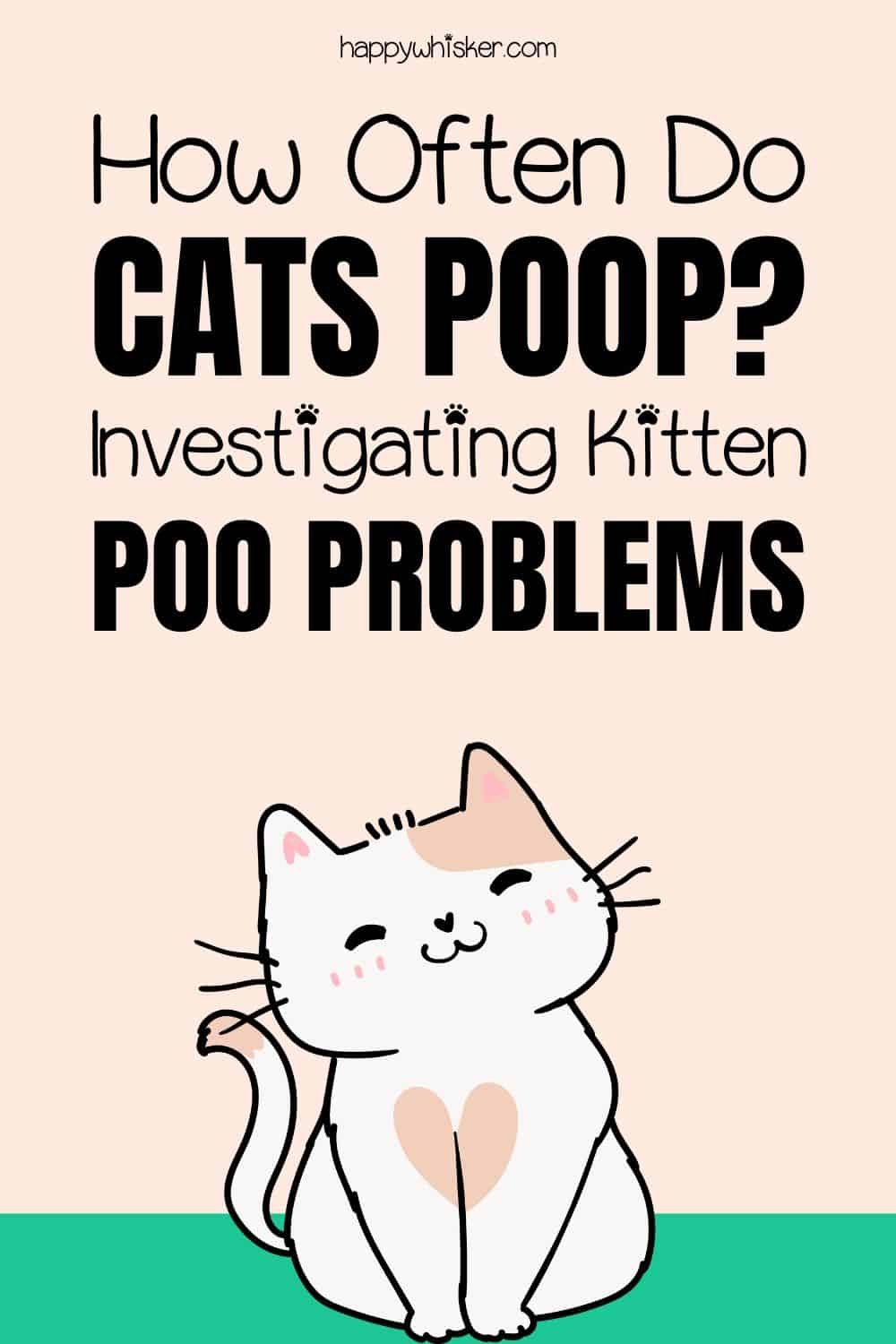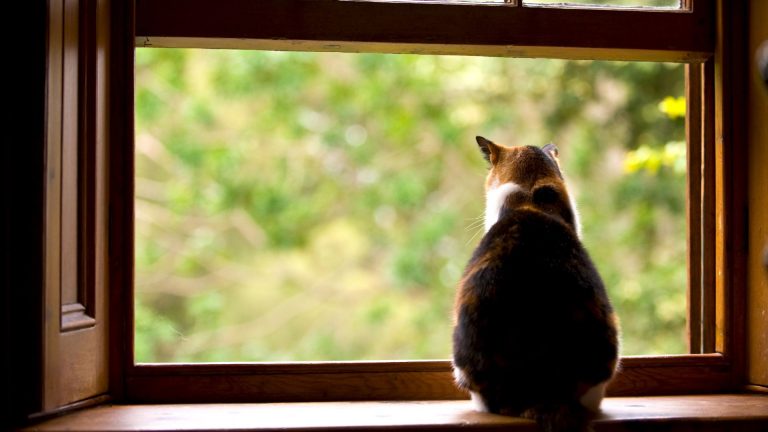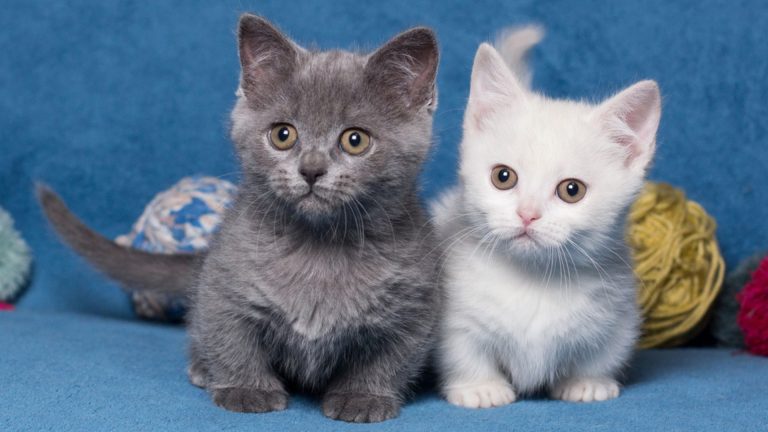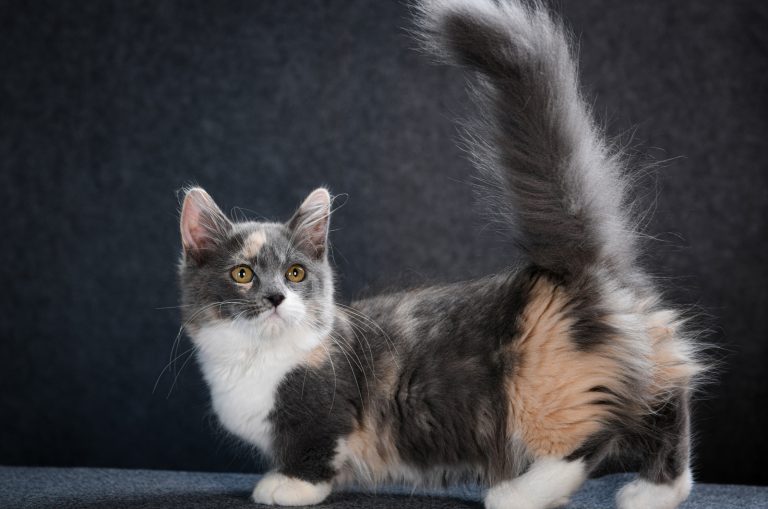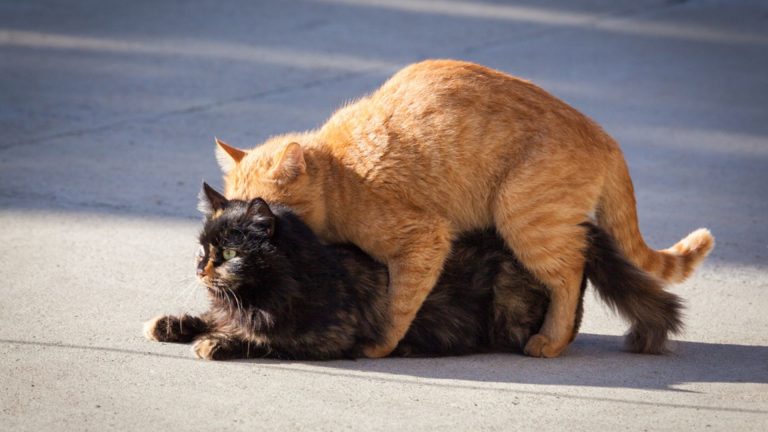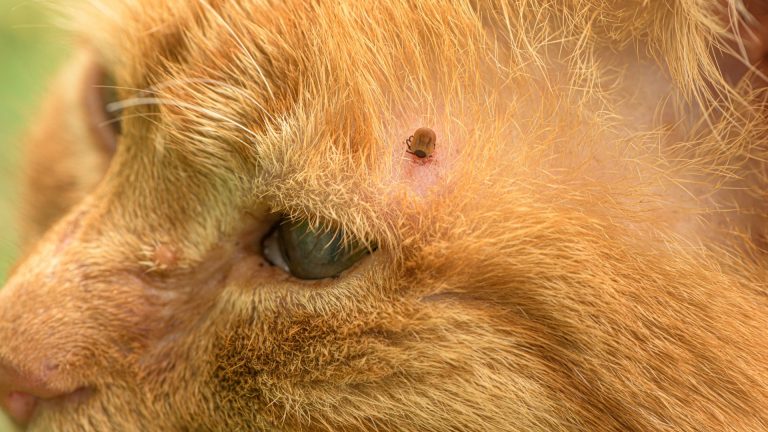How Often Do Cats Poop? Investigating Kitten Poo Problems
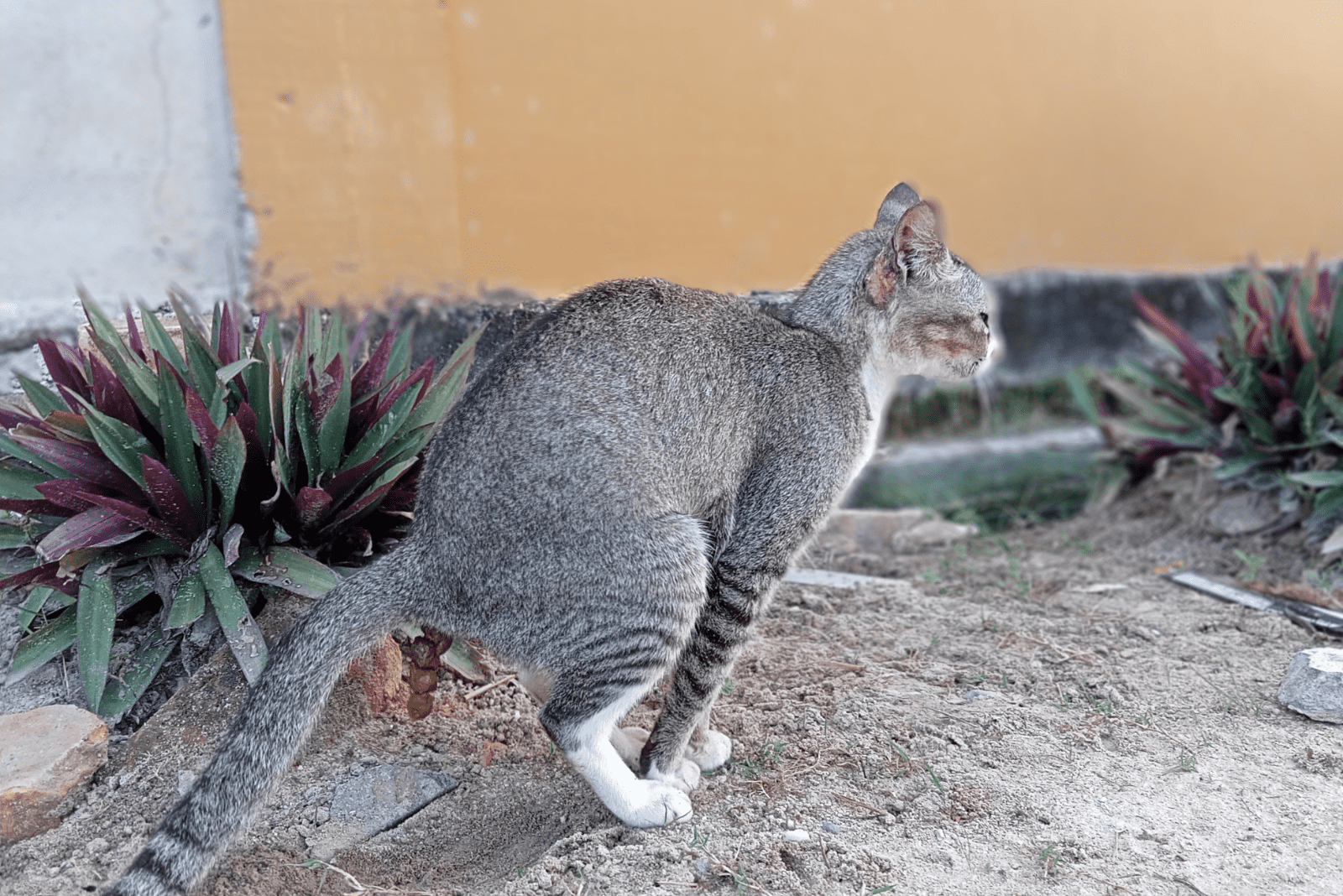
You can learn a lot of things about a cat’s health from the frequency of your cat’s pooping, as well as from the color and consistency of the poop. So it’s a good idea to pay attention when you scoop the cat’s litter box.
This is something that every cat parent should be aware of, and if you notice something unusual, you should monitor your cat and contact your veterinarian if you are concerned.
One of the first questions of any new cat owner is how often do cats poop? A general rule of thumb is that a normal, healthy cat should poop once or twice a day on average.
A healthy cat poop should be brown in color. Light or dark brown colors are also acceptable, as long as the stool is firm and leaves no traces on the litter box.
If you wonder why is my cat pooping more frequently, or not pooping at all, or why is my cat’s stool watery or hard, then that usually means that the kitty is suffering from a medical condition or gastrointestinal upset causing diarrhea, constipation, or soft stool.
In order to learn more about the frequency of your cat pooping and what health problems they may face, then keep reading; it may be life-saving for your furry little friend.
How Often Do Cats Poop?
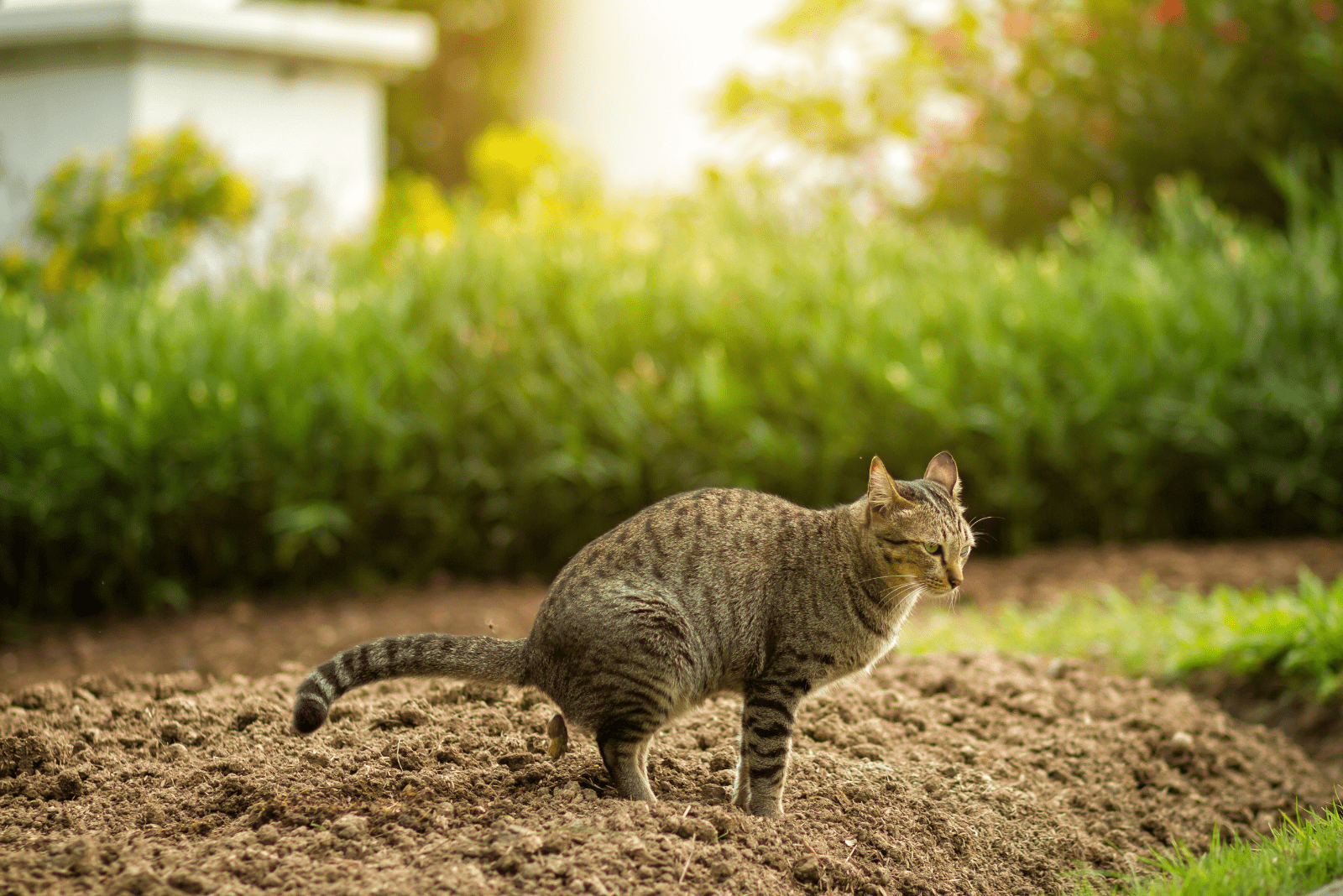
The frequency of your cat pooping may depend on several things, such as:
• Your cat’s activity level – sedentary cats are more likely to have sluggish digestion.
• Your cat’s diet – fiber intake is important for digestive transit.
• Your cat’s age – when kittens start pooping, it’s normal for them to poop several times a day. As they grow, the number of defecations decreases.
So, in order to find out how often do cats poop taking into account any health condition they may be dealing with, keep reading to find out what health issues can affect the cat’s stool, as well as how to treat them.
Cats With A Healthy Bowel Movement – How Often Should They Poop?
If your cat typically has a healthy bowel movement (a healthy cat poop), it should go no more than one or two times a day. The poop should be a deep brown color, and it should be firm like playdough.
Moreover, a poop with that type of consistency shouldn’t leave traces behind and it shouldn’t have an unbearable smell.
If you notice changes in the color or consistency of your cat’s bowel movement, it may have diarrhea, constipation, or soft stool, and these can be caused by health issues that need to be taken care of.
Cats With Diarrhea – How Often Do They Poop?
If your feline poops several times a day, and the result is watery runny brown fluid, it means that your cat is suffering from diarrhea.
Diarrhea can really exhaust a cat and cause them to be weak and lethargic, tired, and dehydrated. Therefore, if your feline friend continues to have diarrhea for more than a day or two, then make sure you visit the vet for a check-up.
It’s highly important to determine the underlying cause of the diarrhea and treat it promptly so that your feline will be happy and healthy again.
Common Causes For Diarrhea In Cats & Treatments
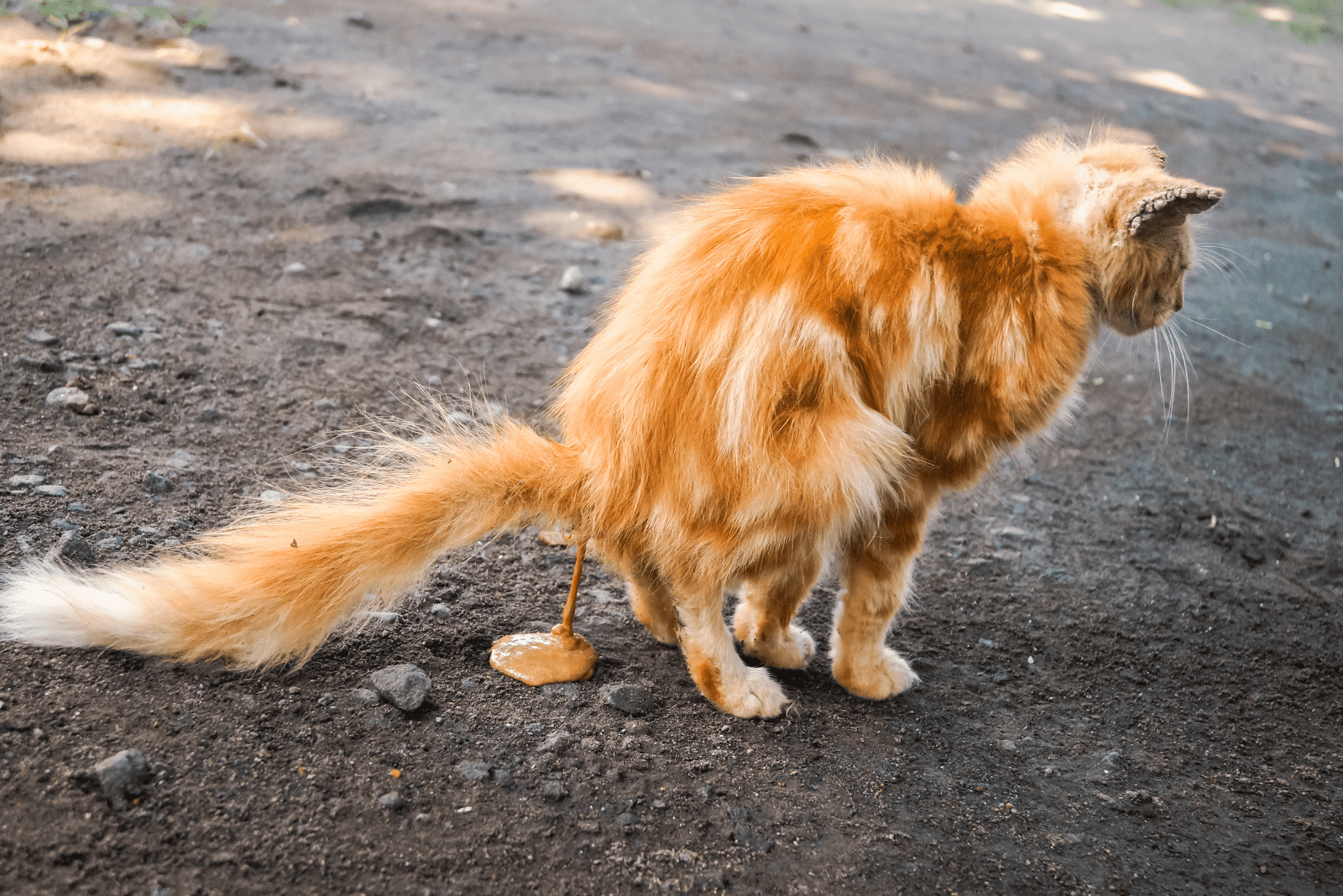
There are several things that may cause a cat to have diarrhea, and each issue will be treated differently. That is why it’s especially important to determine the right cause of the diarrhea.
So, keep reading and check out these health issues and how to treat them!
• Bacterial Infections
If a cat has a bacterial infection, it may cause inflammation of the gastrointestinal tract leading to pain in a cat’s stomach and diarrhea as the body tries to clear the infection.
Other accompanying symptoms of bacterial infections include vomiting, fever, loss of appetite, weight loss, watery eyes and runny nose, inappropriate urination, and breathing difficulties.
If the vet determines that the cat has a bacterial infection, they may prescribe certain antibiotics such as amoxicillin, and additional pain and fever medications.
If it’s a less serious infection, with appropriate care and right medications, the cat will recover within 7-10 days, however, in more serious cases, it may last a bit longer.
• Inflammatory Bowel Disease (IBD)
This is a condition that causes the irritation and inflammation in the cat’s gastrointestinal tract. This issue is usually followed by certain symptoms such as loss of appetite, lethargy, vomiting, and bloody stools.
As far as treatment is concerned, it’s important that the cat has a special diet as well as the necessary vitamins and supplements to support their health.
• Food intolerances
As obligate carnivores, cats need to be fed with top-quality food that contains animal proteins and other nutrients important for the cat’s organism.
Some owners may give cats human food, but not every human food is healthy or safe for felines; some may lead to diarrhea.
If your feline starts showing symptoms such as vomiting, coughing, sneezing and watery eyes, along with having diarrhea, it may be intolerant to certain foods.
If food allergies are causing diarrhea and other issues for your cat, then certain dietary changes are inevitable. This problem may often appear in young kittens, especially orphaned ones.
Some cat owners may feed their pet cow’s milk or other milk types which is a big NO, because although kittens and adult cats may like milk, they’re usually intolerant to milk and other dairy products. Therefore, kittens should be fed with special milk replacement kitten formula only.
• Parasitic Infection
One of the causes of diarrhea in cats is parasitic infection, specifically intestinal parasites such as tapeworms or roundworms.
This issue may cause problems with the cat’s bowel movement and can even lead to inappropriate defecation. Other accompanying symptoms of parasitic infection are vomiting, smelly poop, loss of weight, different poop colors, and similar.
If this problem affects your cat, it’s necessary to take your feline to the vet for an examination, where they will probably provide your furry friend with some dewormer medication.
During the period of infection, it’s also important to isolate the infected cat and to clean your house carefully in order to prevent the infection from spreading throughout your home.
• Pancreatitis
This condition refers to the inflammation of the pancreas. Besides the fact that it may cause diarrhea in cats, it also causes other symptoms including vomiting, abdominal pain, fever, weakness, loss of appetite, and similar.
It’s important to take your cat for a vet-check so that they can treat this condition properly.
Pancreatitis is usually treated with anti-inflammatory medications and other drugs that control diarrhea, as well as intravenous fluid and antibiotics if infection develops.
• Hyperthyroidism
This health condition is very common in cats, especially senior cats and it causes overproduction of the hormone thyroid. The most common symptoms of this issue include weight loss, vomiting, excessive thirst, urinary issues, increased appetite, and similar.
After the detailed examination and investigations, the vet will provide the cat with oral medications that usually contain methimazole. These medications are designed to stabilize the cat’s condition.
However, it can also be given before other types of treatment such as surgical procedures or iodine therapy. With appropriate and right treatment and with a bit of luck, your feline friend will be able to recover completely from this health issue.
Cats With Constipation – How Often Do They Poop?
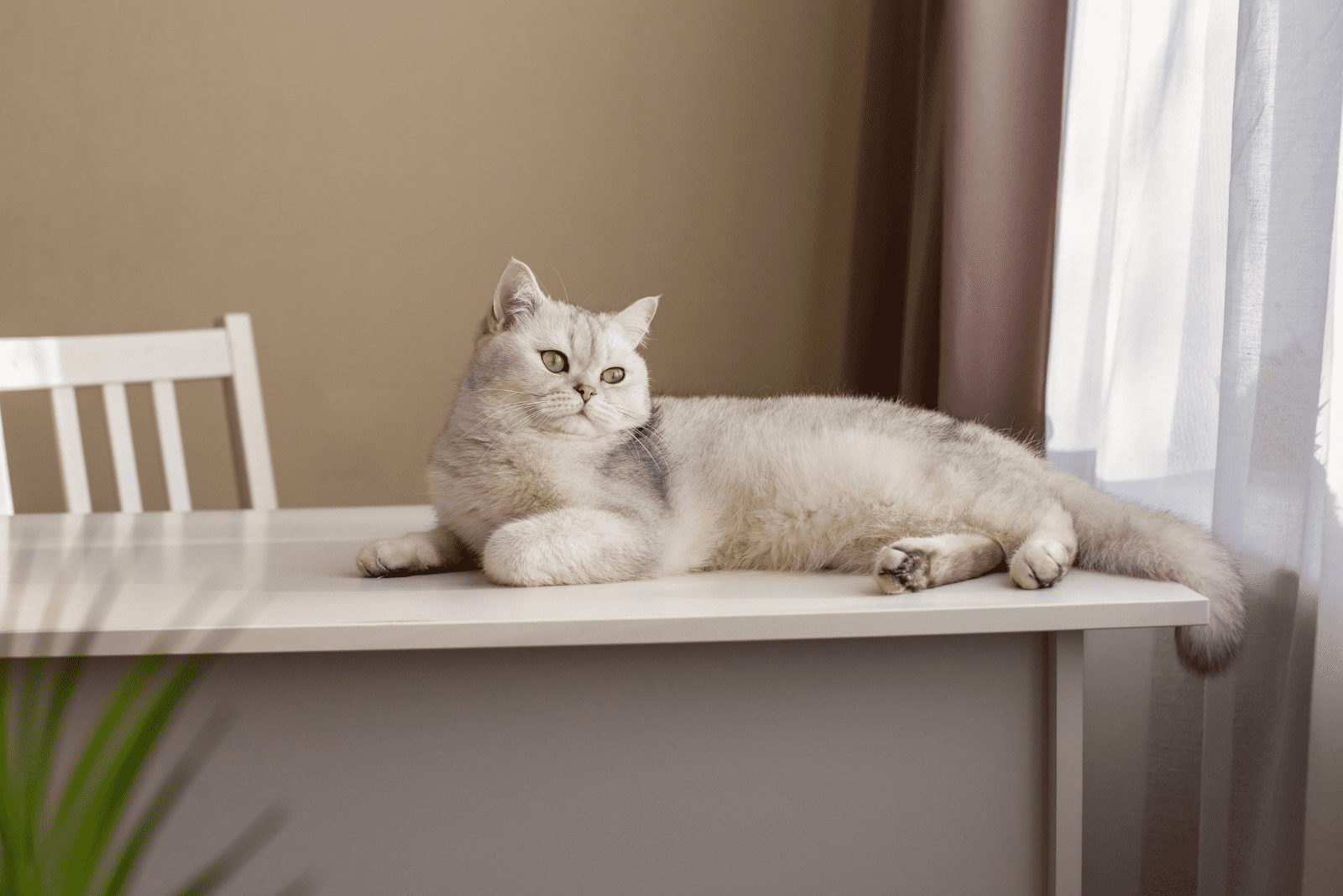
If you haven’t noticed your feline friend pooping for a day or two, it’s possible that it is suffering from constipation. This can cause a build up of poop in the cat’s body and this is not healthy.
If your cat hasn’t defecated for a few days, it may require help in order to have a healthy bowel movement and this requires special veterinary care.
Common Causes For Constipation In Cats & Treatments
Cat constipation may happen for several reasons, and each one of these reasons requires special treatment. So, let’s check them out and learn more!
• Dehydration
This is a common cause of constipation in cats. Cats always need a source of fresh water near their food. If they don’t drink enough water or eat high quality food, or if they eat only dry food, they may become dehydrated, and that leads to constipation.
This isn’t a really serious problem, unless you have an older cat, but it’s important to consult with your vet.
You should provide your feline friend with fresh water all the time, as well as feeding them top-quality wet food as it’s higher in moisture and will help keep the cat hydrated.
• Feline Megacolon
This is a health condition that results in a weakened colon; it loses its motility and it’s not strong enough to pass the hard stool. Therefore, a weakened colon leads to constipation.
The symptoms of megacolon are similar to those of colitis, including loss of appetite, weight loss, vomiting, weakness and lethargy, as well as possible depression.
This health issue is usually treated surgically, by removing most of the colon, but luckily, cats respond to it very well and continue living happy and healthy lives.
• Intestinal Blockage
This condition may also lead to constipation and difficulties with defecating due to stuck objects or even tumors. Unfortunately, this problem usually requires surgery, but most cats manage to recover completely from the condition.
• Hairballs
It’s very important to groom your feline friend properly, especially during the shedding season, because if you don’t, it can result in constipation in your cat.You may wonder how this is possible – what is the link between hairballs and constipation?
We all know that cats spend a lot of time grooming, and in doing so they ingest some hair which form hairballs that get vomited up. However, constipation may occur when cats ingest a lot of the hair which then blocks the digestive tract.
• Kidney Disease
This problem is very common in cats. Dysfunction of the kidneys means they’re not able to regulate the bloodstream properly.
This condition usually results in symptoms such as lethargy, weight loss, frequent urination, excessive thirst, loud meowing, and similar.
Unfortunately, this condition isn’t treatable and it may progress slowly or very quickly. Cats with moderate kidney disease may live up to 3 years, in the best case.
When treating constipation in cats, you need to make sure that the cat has a good water intake, that it’s fed with top-quality food that contains plenty of fiber, and make sure you groom your feline often to remove dead hair.
The best thing is to take the cat to the vet for a check-up so that they can investigate any potential health issues.
Moreover, the vet may prescribe certain probiotics, cat-safe laxatives, or an enema. Enemas are used to empty the cat’s bowel when they suffer from constipation.
However, it’s very important not to give any treatments such as enemas at home by yourself, as it can be very dangerous. It is best to leave it to the professional veterinarians to do their job.
Cats With Soft Stools – How Often They Poop?
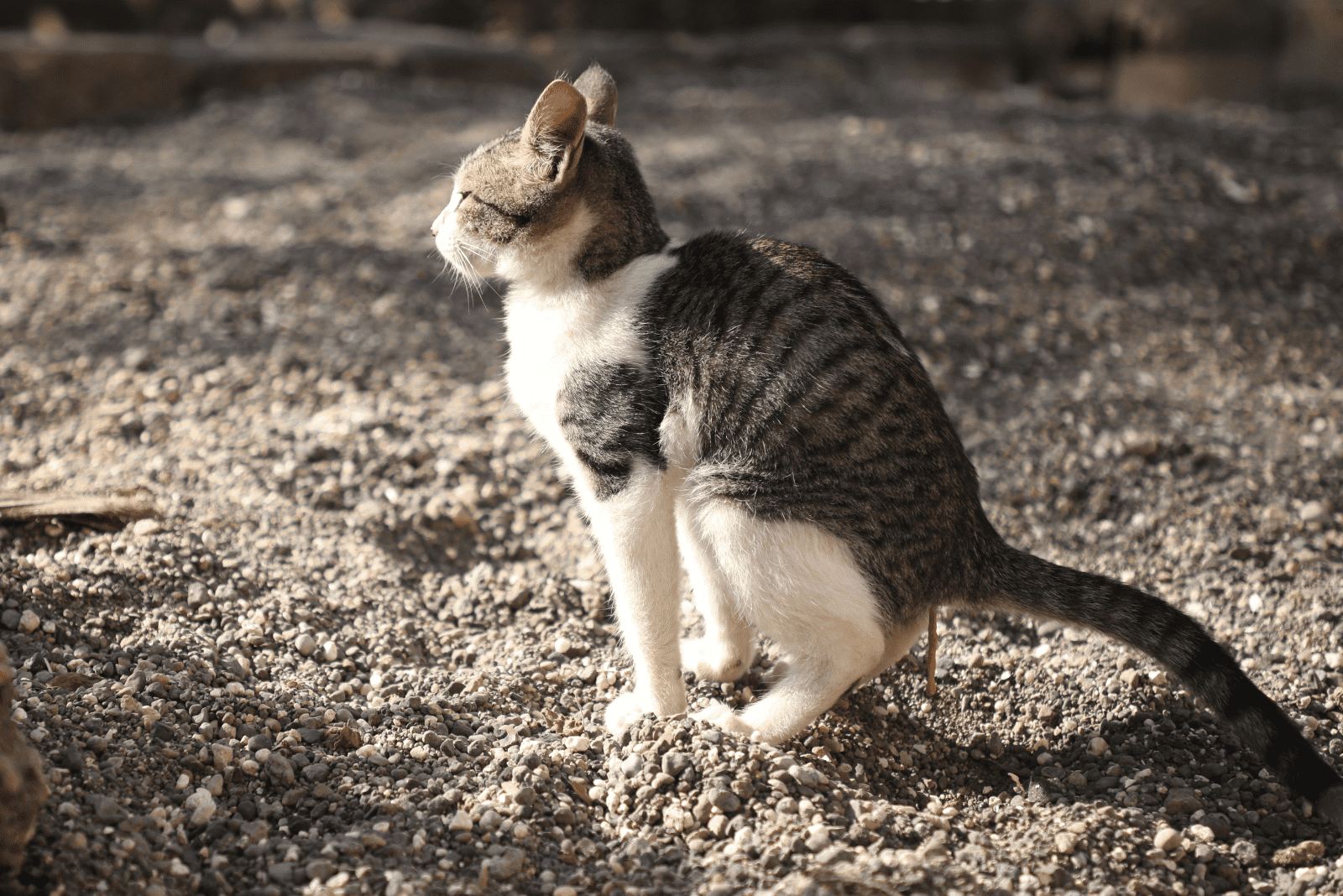
If you notice that your cat’s stool isn’t firm, but rather soft, then you should start monitoring your cat’s behavior.This type of stool is often the result of an upset stomach due to dietary changes, and so when this is resolved, the stool usually goes back to normal.
Common Causes For Soft Stool In Cats & Treatments
Soft stool in cats is usually caused by a certain food or a generally poor diet. If it’s because of food, then the stool should go back to normal firm consistency when you establish a better diet plan.
However, if the stool continues to have that consistency, it’s important to inform your vet and get advice on what to do next or any possible investigations the vet might deem necessary.
Other things that may cause soft stool in cats are:
• Viruses
• Bacteria
• Worms
• Stress
The treatment of soft stool depends on the underlying case. However, if stress is the main culprit for the soft stool, then you should find what stresses your feline friend and try to reduce it in order to calm them.
Cats are usually traumatized or stressed due to new changes in their life, so make sure that change happens gradually and that they are given plenty of space and calm attention so they feel secure.
Warning Signs About Cat Poop
As well as the different poop consistencies, as previously mentioned, there are other warning signs about cat poop, including the color and smell of the cat’s poop. Changes in color and smell also suggest health issues that require special care.
Read on to find out which colors of cat poop warrant a trip to the vet and just how smelly is too smelly for your cat’s poop!
Poop Colors That Indicate Health Issues
• Red cat poop color – red cat stool requires immediate vet attention, as it usually happens due to bleeding from the anus, caused by bacterial infections or infectious diseases.
• Black cat poop color – this poop color is usually a sign of a cat bleeding from the gastrointestinal tract or large intestine. It may be followed by symptoms such as vomiting, weakness and lethargy, pain, and similar, which is why it requires immediate professional help.
• White cat poop color – white colored poop is not a good sign as it usually suggests liver or kidney problems, bile duct problems, parasites, or bacterial infections.
• Green cat poop color – this color of cat poop may indicate that a cat has a parasitic or bacterial infection, possibly due to consuming contaminated food or water. On the other hand, it can mean that the cat has eaten an excessive amount of grass.
• Yellow cat poop color – yellow poop is another warning sign when it comes to your feline’s health as it usually indicates gallbladder and liver issues, parasitic infections, pancreatitis, and other issues with the digestive system.
• Orange cat poop color – orange poop usually occurs if the cat suffers from liver or gallbladder issues, or even some bacterial infections. It can also simply be a sign that the car has eaten something containing beta carotene.
Poop – How Smelly Is Too Smelly?
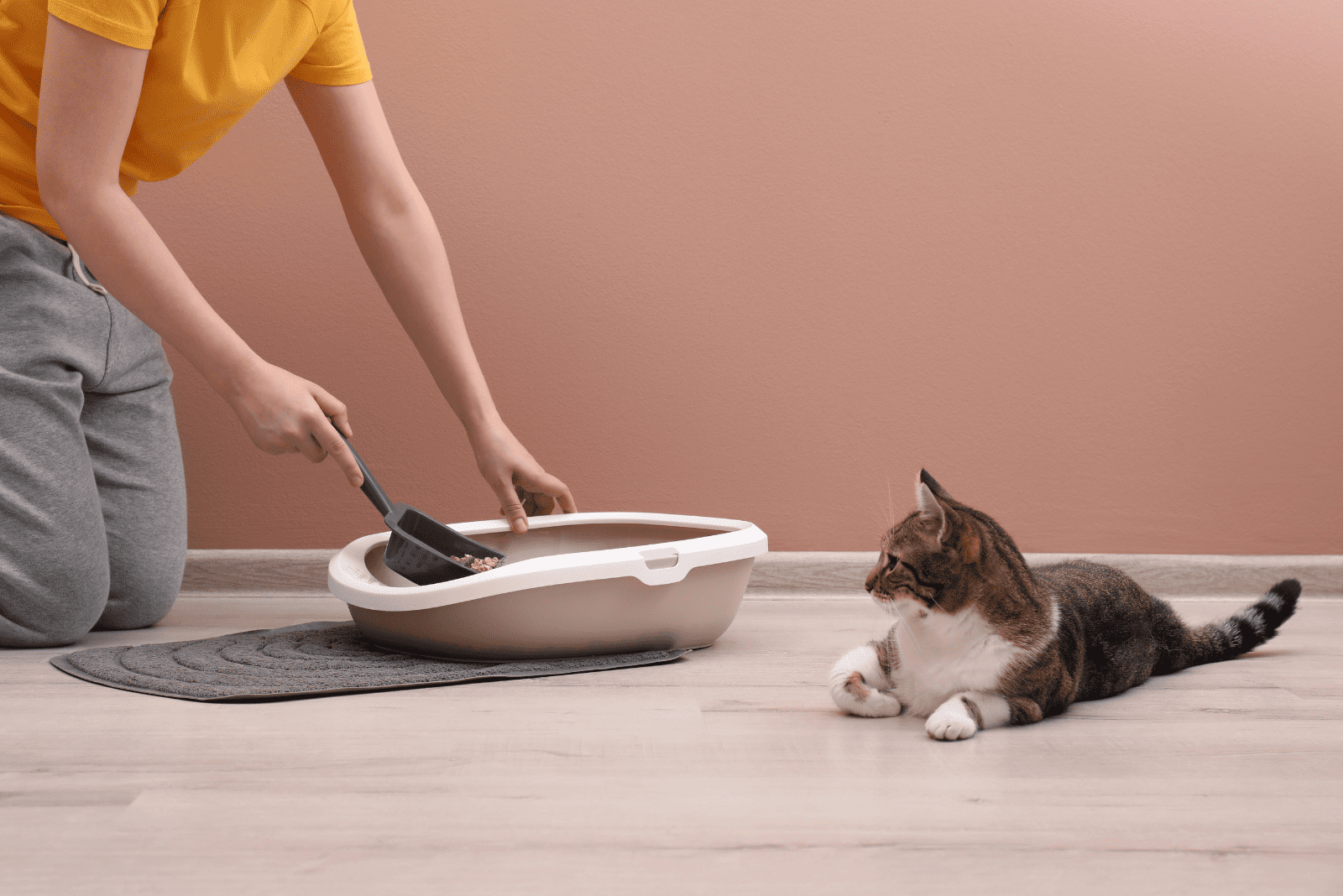
Of course poop is smelly; that’s completely normal as it’s basically the waste that the cat needs to eliminate from its body.
However, if the poop smell is unbearable, it’s not normal!
A cat’s poop shouldn’t be unbearably stinky, but if it is, then you should take your feline to the vet as an extremely bad smell may be the consequence of serious health issues, such as:
• Cat’s diet– certain foods may cause changes in the color of the cat’s poop, and they may also cause the poop to be very smelly. Therefore, if you suspect that the main reason for the awful smell is the cat’s diet, then try gradually changing the cat food, and providing the cat with a top-quality food that will satisfy their needs. Ask your vet for a recommendation if you aren’t sure which food to give your pet.
• Bacterial or parasitic infections – nothing smells worse than a bacterial infection. Therefore keep that in mind if you find yourself wondering why your cat poop smells so bad. The best thing to do is to take your kitty friend to the vet so that they can treat the problem as soon as possible.
• Intestinal bleeding – this kind of bleeding usually results in red poop, which has an awful smell. If you notice blood in the cat’s stool along with an unbearable smell, visit the vet immediately.
• Anal gland infection – this happens when to much bacteria forms in the cat’s anal glands, and as previously mentioned, bacterial infections may be one of the main reasons why your cat’s poop smells so bad.
• Issues with digestive system – any problem concerning the digestive system may result in smelly cat feces, which is a sign that you should take your cat to the vet for a check-up.
• Stress – believe it or not, stress can cause cat poop to be very smelly. This happens because the stress affects the cat’s hormones which results in an upset stomach, leading to smelly poop.
• Litter box – sometimes, the bad smell may be actually coming from the cat’s litter box itself and you may think it’s because of the feces. This usually happens if you don’t clean the box thoroughly or change the cat litter frequently.
If you neglected the litter box cleaning regime, don’t be surprised if your kitty starts pooping on the floor or somewhere else, as they may not use the litter box until it‘s clean again.
Also, find out how to get rid of litter smell in your environment!
How Long Can A Cat Go Without Pooping?
Cats normally poop once or twice a day, but if you wonder how long they can hold it, the answer is around 24-48 hours. However, there’s no need for them to hold it, and it’s not very healthy as ideally they should poop and pee when they feel the need.
If you notice that your feline friend hasn’t pooped for more than a day or two, then you should contact your vet because they may be suffering from constipation, and require certain help.
Also, find out how long can cats hold their pee!
Finally…
If you have wondered how often do cats poop – the answer is, once or twice a day. However, a healthy cat poop should be deep brown in color with a firm consistency, leaving no traces behind.
If your feline friend starts pooping more times a day, stops pooping at all, or has different poop colors and consistencies, your cat may be suffering from gastrointestinal illness.
If the cat poops several times a day, or has watery or runny stool, it usually means that your cat is suffering from diarrhea.
It’s important to take the cat for a vet-check if the diarrhea doesn’t stop within a day or two. The vet will determine the underlying cause of diarrhea and treat it.
If you haven’t noticed your cat pooping for more than a day or two, again you should take the cat to the vet as it may be suffering from constipation.
After the vet determines the exact underlying cause of the cat’s constipation, he’ll be able to treat it effectively.
Finally, if you want your feline friend to be happy and healthy, don’t forget to monitor or track how many times a day your cat poops, as well as poop colors and consistencies!
Like this post? Share or pin it for later!
